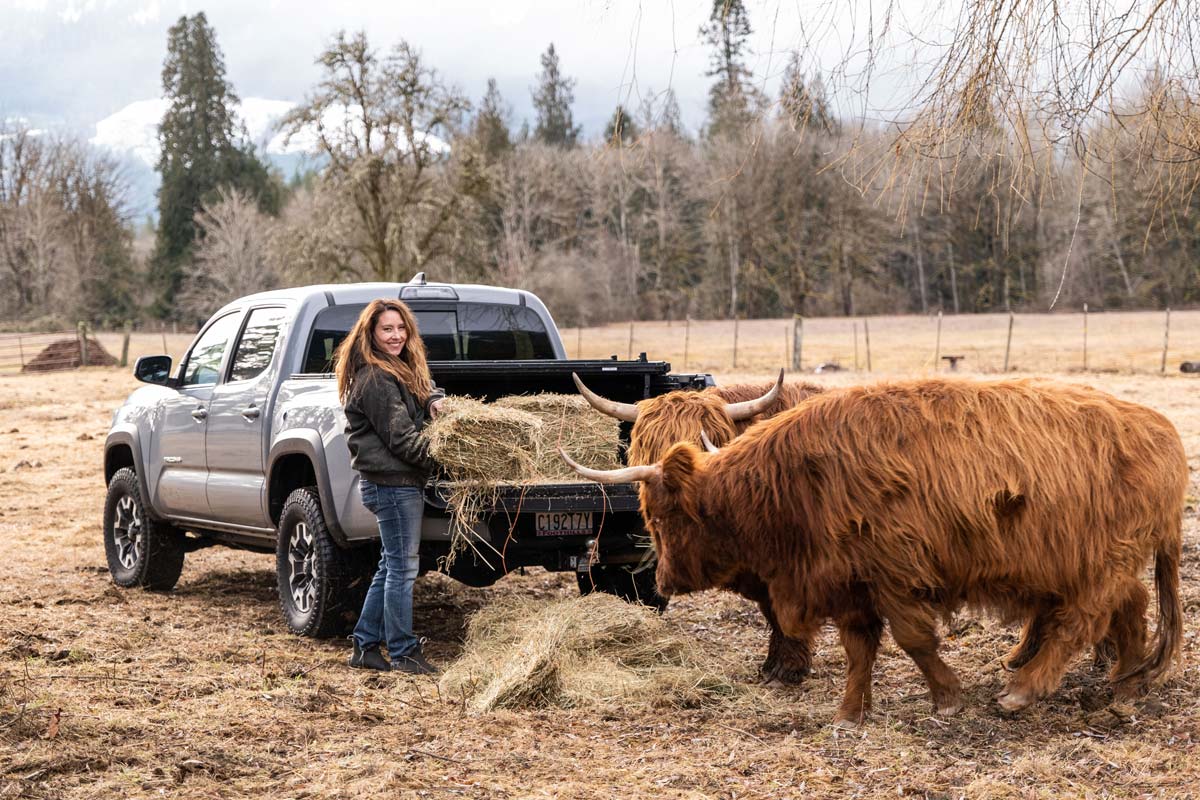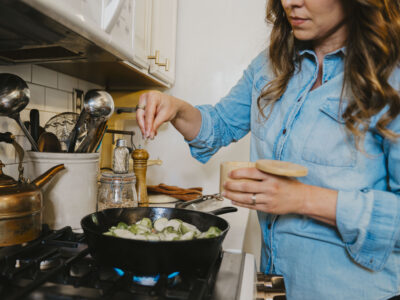So you want to go on vacation or you need to leave town for a few days… but you have a homestead. Feel like you’re stuck? Read on to learn these homestead vacation tips and how to go on vacation without feeling overwhelmed.
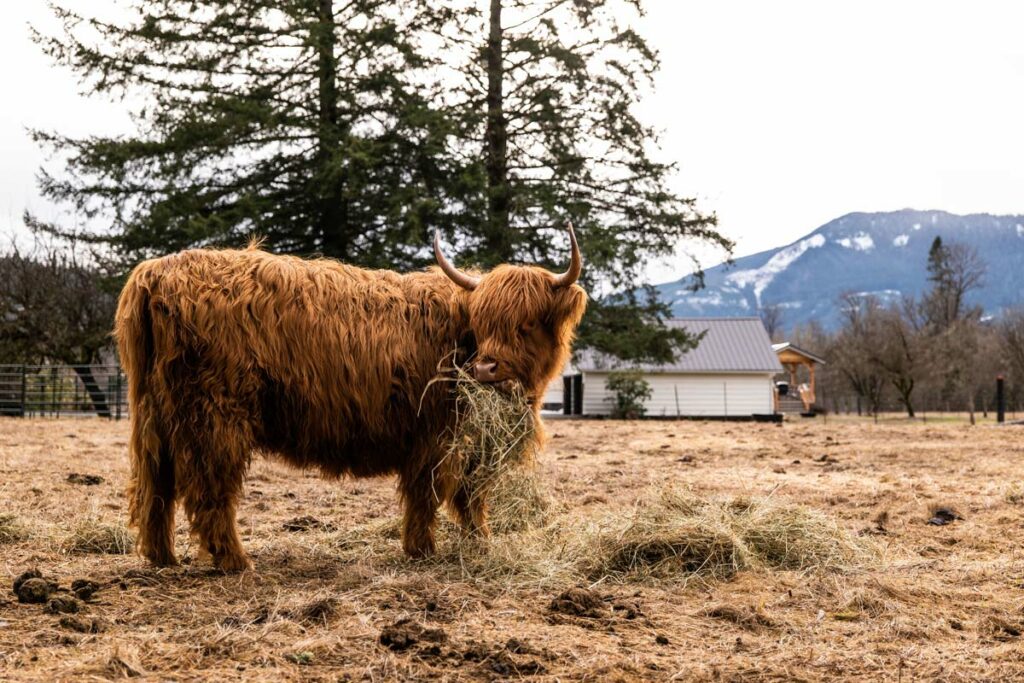
I’ve heard it said that when you have chickens, you’re married to your homestead and will never be able to leave. But I’m here to say that is a homesteading myth that is absolutely untrue!
Read on to learn all my tips for how to take a vacation when you have a homestead.
Isn’t the goal in life to build a home that you never want to leave? That’s part of the beauty of homesteading living. A place in the country, far from the hustle and bustle of town, we can’t see our neighbors from any of our windows, and our life mostly revolves around our homestead (and we like it that way).
But sometimes it’s necessary to leave, whether its for business, pleasure, or an emergency situation. So how do we set ourselves up for a successful time away from the homestead?
There are certain systems you’ll need to put into place prior to handing over your homestead, but you can absolutely take vacations, and I actually encourage it!
Furthermore, these tips can be utilized when you’re headed into an extremely busy time on the homestead to put things on “auto-pilot,” or at least make the chores faster and easier so you can put your focus where it needs to be for the time being.
This is a topic I’ve covered multiple times before, and you can find my previous videos below. It is now being updated with podcast episode #471 and my Roundtable interview with fellow homesteading moms Rachel, Michelle and Sophia as we put our brains together and share the must-do homestead tasks, as well as those that are often overlooked.
Choose Travel Times Wisely
We all know that different times of year on the homestead require different levels of attention from the homesteader. So, choosing your vacation times wisely can mean fewer responsibilities for the caretaker you find.
However, sometimes we don’t have the flexibility to travel when it’s most convenient. So we’ll cover tips for traveling no matter what time of year.
- Fall/Winter: If you live in an area with a harsh winter climate, this can be a harder time to get away because your animals generally require daily feedings (especially animals usually on pasture during the spring and summer months). With freezing weather, this also means checking their water supply to ensure the water hasn’t frozen and the animals can access it. There is also much more that can go wrong on a homestead that requires more know-how than a caretaker may be able to offer. On the flip side, there’s no garden to care for in the winter, so depending on your specific setup and requirements and climate, the winter may be an easier time to get away. These tips for preparing your homestead for winter may come in handy as well.
- Spring/Summer: For us, traveling in the spring and summer months is easiest, especially for our caretakers, because we generally only need them to do a visual check (at least for a shorter trip). This visual check would include ensuring the animals are safe, that none of them are in trouble, and that the watering troughs are full (which shows that the automatic waterers are working properly).
Along the lines of timing, you also want to make sure you’re not traveling during a period when any of your livestock are expecting to give birth.
For us, late spring/early summer is a great time to go because we’ve already planted the garden, but none of the crops are coming on very strong, or needing harvesting or trellising.
Find a Trusted Caretaker
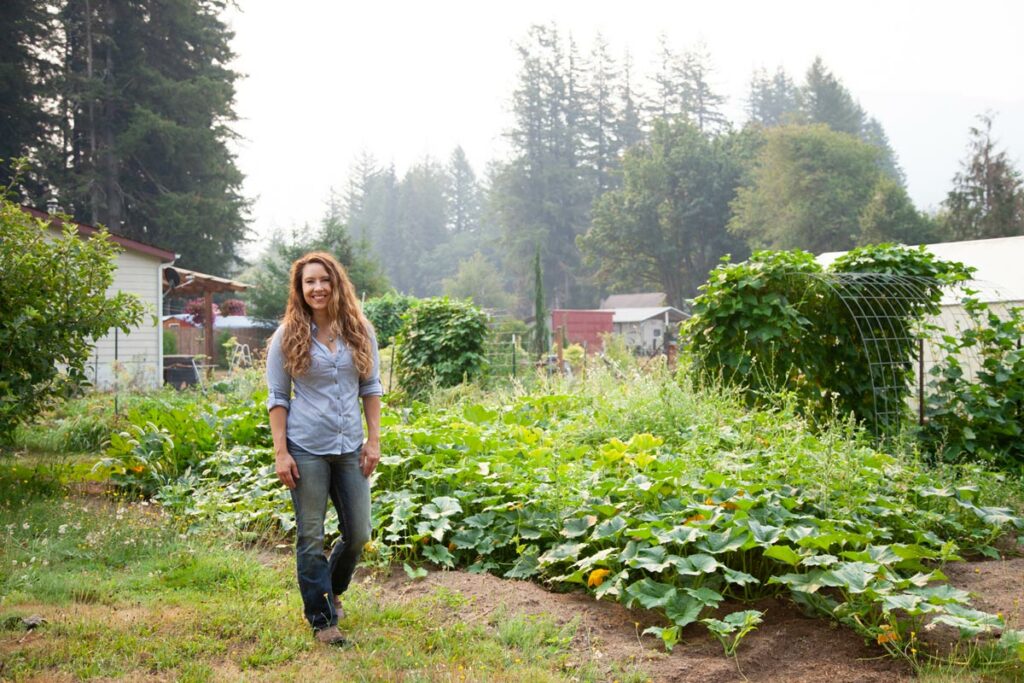
Finding a trusted caretaker isn’t always easy. We’re thankful to have family close by who are all familiar with our homestead and setup, but not everyone has this option.
I always recommend finding someone who has prior homestead knowledge or at least knowledge of what you’re having them care for. For example, if you’re finding a caretaker for your dairy cow, it’s good if they’ve had prior experience in milking and tending to a dairy cow.
Think outside the box when it comes to finding a caretaker. Maybe you know someone who also has a homestead, and you trade off taking care of each other’s place while you’re gone.
We paid for the gas to and from our home for our caretaker and allowed her to take home all the milk she got from the day’s milking.
You can also find people willing to stay at your home, so there’s always someone there, just in case. Find what you’re comfortable with. This may take some trial and error but don’t give up. With enough perseverance, you will find someone.
Minimize Chores & Implement Systems
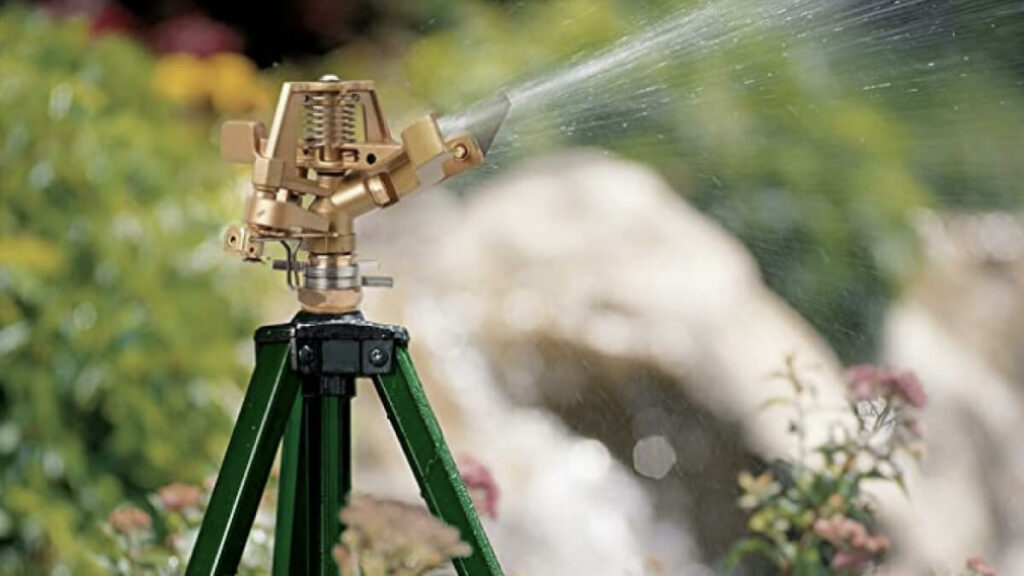
One of my biggest recommendations is to implement systems ahead of time so you can do some “dry runs” to see exactly how long you can go between feedings or filling waterer, etc. Learn these basic homesteading skills to get your homestead set up well. Then learn these time management skills for running a successful homestead.
This information will be so helpful for you and your caretaker to know how many days between chores they can go. But implement these systems ahead of time and know all the variables.
For example, if it’s extra hot and sunny, your animals may go through their water faster than during rainy, cool weather. And your garden may need extra watering as well.
Table of Contents[Hide][Show]
Caring for Specific Animals
Chickens, Ducks & Other Poultry
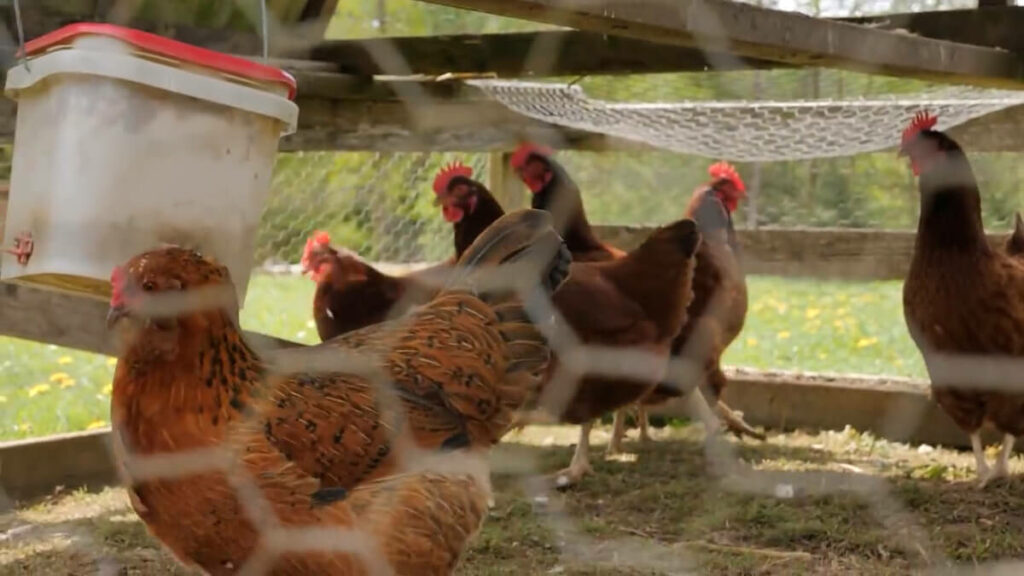
We all know chickens are the “gateway” animal when it comes to homesteading. How to care for chickens while you’re away is probably the most common question that people have when traveling.
The great news is, having chickens doesn’t mean you’re married to your homestead! Learn how to raise backyard chickens here and how to raise meat chickens here.
In fact, I can be gone for a full two days and confidently know my chickens are well taken care of. Now, that being said, I do like to still have a “boots on the ground” visit set up with a caretaker to at least check on the homestead while I’m away.
That’s just to ensure nothing out of the ordinary has happened, such as a breach in the coop, a tipped-over feed tray or waterer, electric netting that needs attention, etc. A bonus is if the caretaker knows how to troubleshoot and care for common chicken problems.
- Moveable Coop: If you use a chicken tractor or a moveable chicken coop with poultry netting, then make sure the day you leave, the chickens are on a fresh patch of grass. Depending on how long you’ll be gone, you may need to show your caretaker how to move the tractor, where to move it next, and when to move it.
- Stationary Coop: If you have a stationary chicken coop, then you’ll want to be sure the coop is clean with fresh bedding.
- Extra/Larger Feeders & Waterers: Having extra feeders and waterers means your caretaker doesn’t have to refill food and water as frequently. For short trips, this can also mean a quick check on the chickens by a caretaker is all that’s necessary. I have a 5-gallon waterer and an extra feeder, and my chickens can go a full two days before needing to refill them.
- Electric Fence Netting: Utilizing electric fence netting can be great to keep your flock safe from predators. Be sure your caretaker knows the basics of making sure the netting is hot and set up properly. This post on using electric fence netting may be helpful to share with them.
Large Livestock (Cattle, Horses)
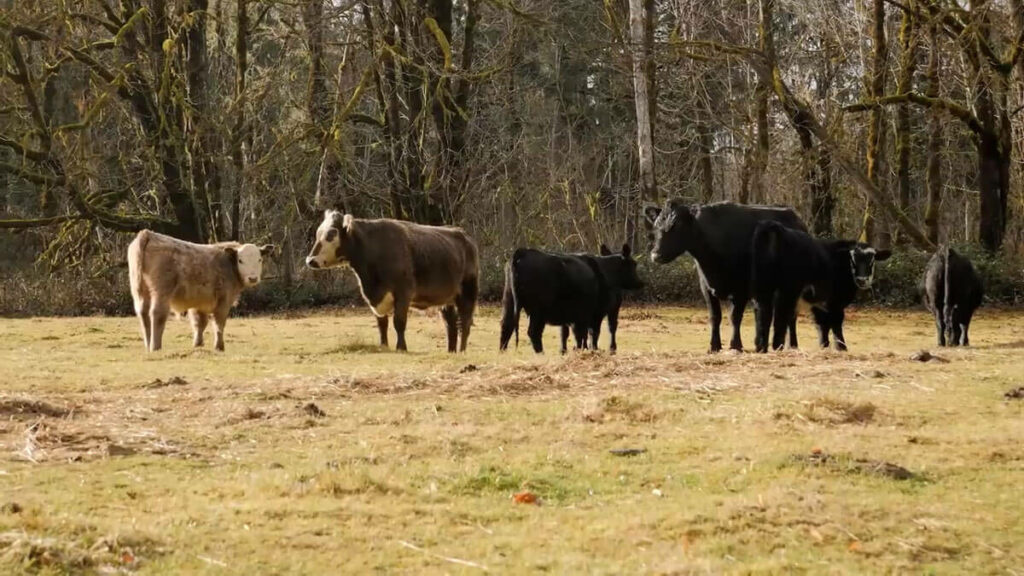
When it comes to larger livestock, traveling during the spring and summer months, when they can be out on fresh pasture, is usually much easier on a caretaker than when they need daily feedings.
This will all vary based on your setup, but it is something to consider.
- Automatic Waterers: Automatic waterers can be a game-changer for a homestead. It can be an investment to have water run everywhere you need it, but it’s one system that I’ll never regret. All our caretakers need to do is check and make sure the watering troughs are all topped off as they should be.
- Feed: If your animals aren’t able to be on fresh pasture, consider staging their feed so it’s easier for your caretaker to make it accessible to the animals. Large bales of hay can be difficult to move, so thinking about this ahead of time is wise. Learn how we stock up on feed here.
- Vet Information: Always leave your caretaker with your vet’s information, in case of an emergency.
Pro Tip: Have some grain in an easily accessible place so, if cows do get out, your neighbors can quickly get a bucket of grain as an incentive to get the livestock back in.
Dairy Animals (Family Milk Cow & Goats)
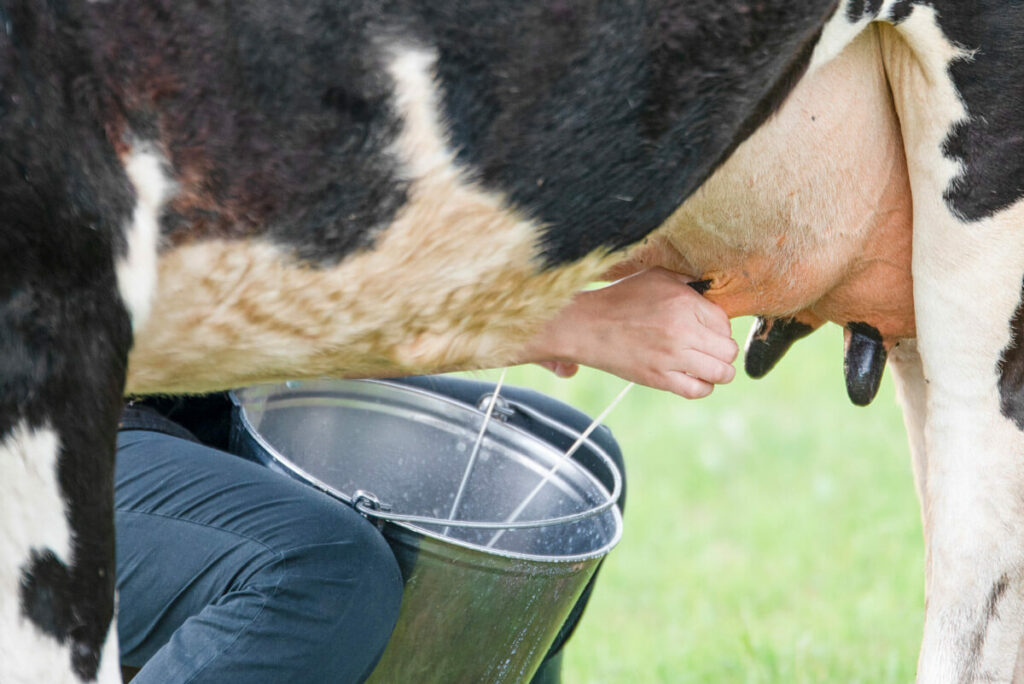
Timing a vacation with dairy animals requires a bit more forethought. The best-case scenario is to take a vacation while your dairy animal is dry (isn’t producing milk).
For dairy cows, they are typically dried up about 60 days before they’re due to calve. After they’re dried up (and the threat of mastitis has passed), is a great opportunity to take a vacation! Learn everything you need to know about keeping a dairy cow here.
The same goes for dairy sheep and dairy goats (but check the timing for drying them up, it may differ).
If you have a trip planned while you have a dairy animal in milk, here are my tips:
- Utilize calf-sharing (if possible).
- Get an experienced caretaker and gift the milk.
- Get on a 16-hour milking schedule (check out my podcast with Robyn from Cheese From Scratch)
- Train up a caretaker and get them comfortable with your cow and the milking routine.
- Think through all possible issues that may arise and prep your caretaker.
Caring for the Garden
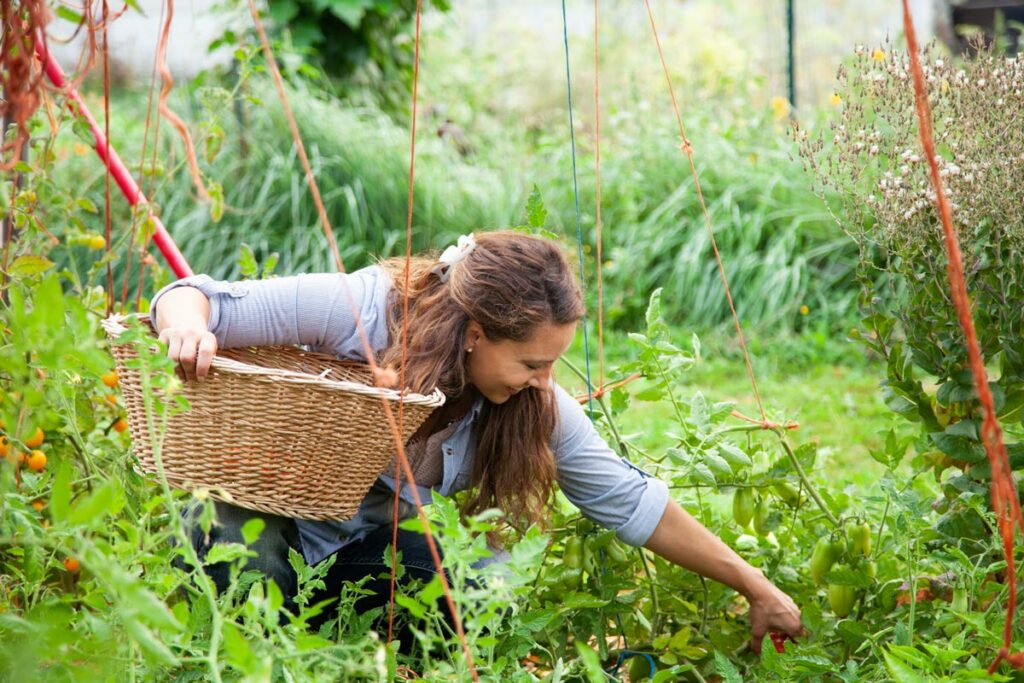
When it comes to the garden, I can’t stress enough the importance of setting up systems that make your life easier.
Don’t wait for a vacation to get your garden set up on an automatic watering system or to add mulch to retain moisture in your soil! These are invaluable for saving time, especially if you have a large-scale garden.
You can purchase some automatic watering systems that aren’t very expensive (especially when you consider the cost of having a caretaker who needs to do daily watering for you!). One automatic watering system and a good layer of mulch can pay for itself with the savings of a daily caretaker. (Learn the best way to water a garden here.)
Then, once you have this system in place, your gardening job is much easier!
- Harvest all produce that’s close to being ripe/ready to pick.
- Do as good of a weeding job as possible so you don’t come back to a jungle.
- Offer any ripe produce to the caretaker caring for your homestead. This is especially good for those crops that produce more crops the more you harvest!
- Make sure greenhouses are properly vented before you leave so your plants don’t get too hot.
A Few More Tips
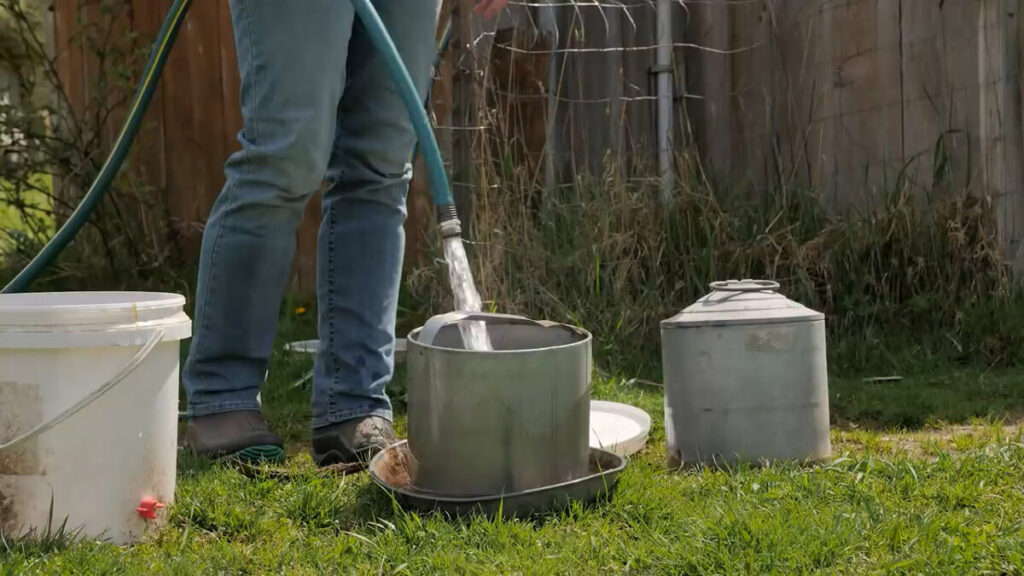
Finally, a few more tips when leaving the homestead that can often get forgotten about. These don’t have to do with animals, but rather the rest of the home.
- Freezers/Refrigerators: The last thing you want to come home to from vacation is a failed freezer or refrigerator and hundreds (or thousands) of dollars worth of food spoiled. My recommendation is to get an alarm that sends your phone an alert if the temperature rises above a specified level.
- Consider the Weather: Is everything buttoned down if a windstorm blows through? What about a freak cold snap or heatwave? Consider all of these options so your home and animals will survive.
- Smells: Always empty the trash and run the dishwasher before going out of town. There’s nothing worse than coming home to a house that smells like rotting trash or food. It’s also a good idea to go through the refrigerator or any food (like winter squash) that may go bad while you’re away.
- Security: Having proper homestead security set up is a great option. This is especially true if you’re not getting a housesitter or if you don’t have trusted neighbors to keep an eye on things.
As a word of encouragement, if you’ve left the homestead in the past and had something go wrong, don’t let that stop you from trying again! Instead, use that opportunity to look more closely at what went wrong. How can you set up systems to avoid that problem in the future?
If it was an issue with animals, perhaps you need to find a caretaker who’s more familiar with them. Training only goes so far. With some issues, it’s best to have someone with years of experience vs. a couple weeks of training.
Don’t give up hope for ever being able to leave your homestead again! Vacations and time away are important, especially to avoid burnout.
As I mentioned, the goal of homesteading is to turn your home into a place you rarely want to leave. So set it up in a way that’s enjoyable and easier for you. You’ll likely find that getting a caretaker is also easier.
Verse of the Week: Luke 12:8-9
More Posts You May Enjoy
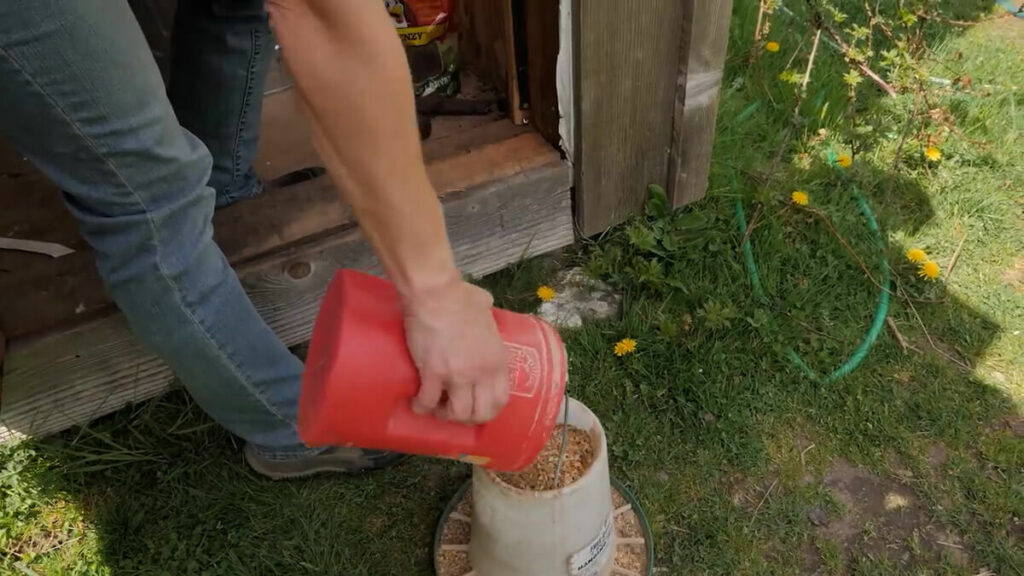
- Essential Homesteading Skills to Learn Now
- A Military Wife’s Look on Homestead Preparedness
- 17 Self Sufficiency Tips from the Great Depression
- 10 Things Our Grandparents Reused During the Great Depression
- 6 Things Our Great-Grandparents Did Better Than Us
- How to Find & Buy Land Beyond the Usual Routes
- Time & Budget Saving Tips from the Great Depression
- 5 Life Lessons from the Great-Depression
- Great Depression Era Money Saving Tips w/ Potatoes
- 7 Depression Era Tips to Stretch Your Food Budget
- 8 Depression Era Tips to Save Money Now
- Time Management Skills for the Homestead
[fusebox_transcript]
